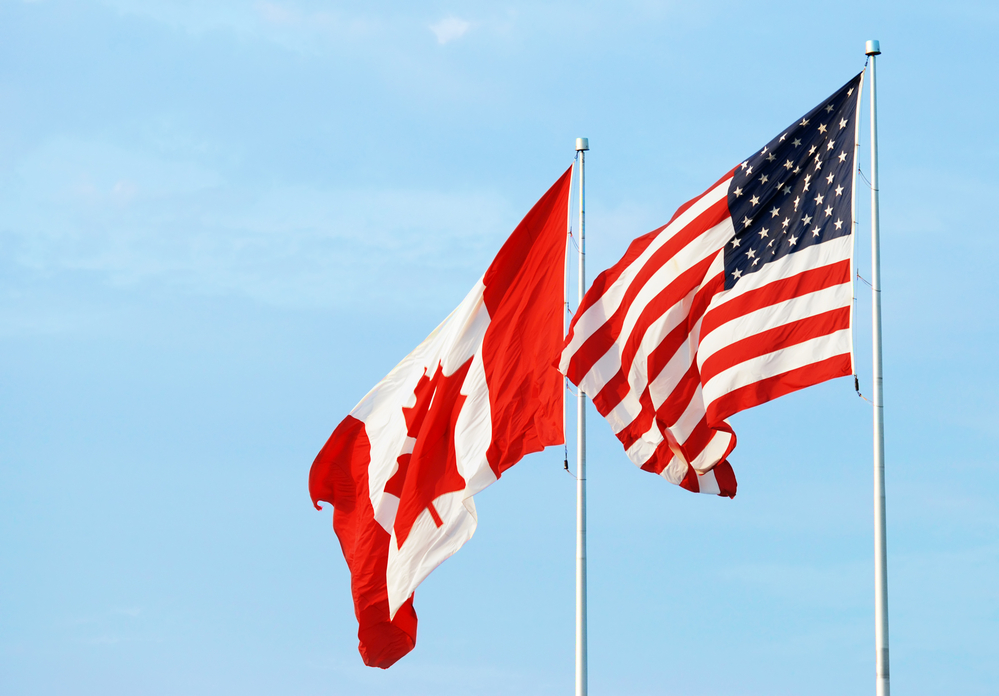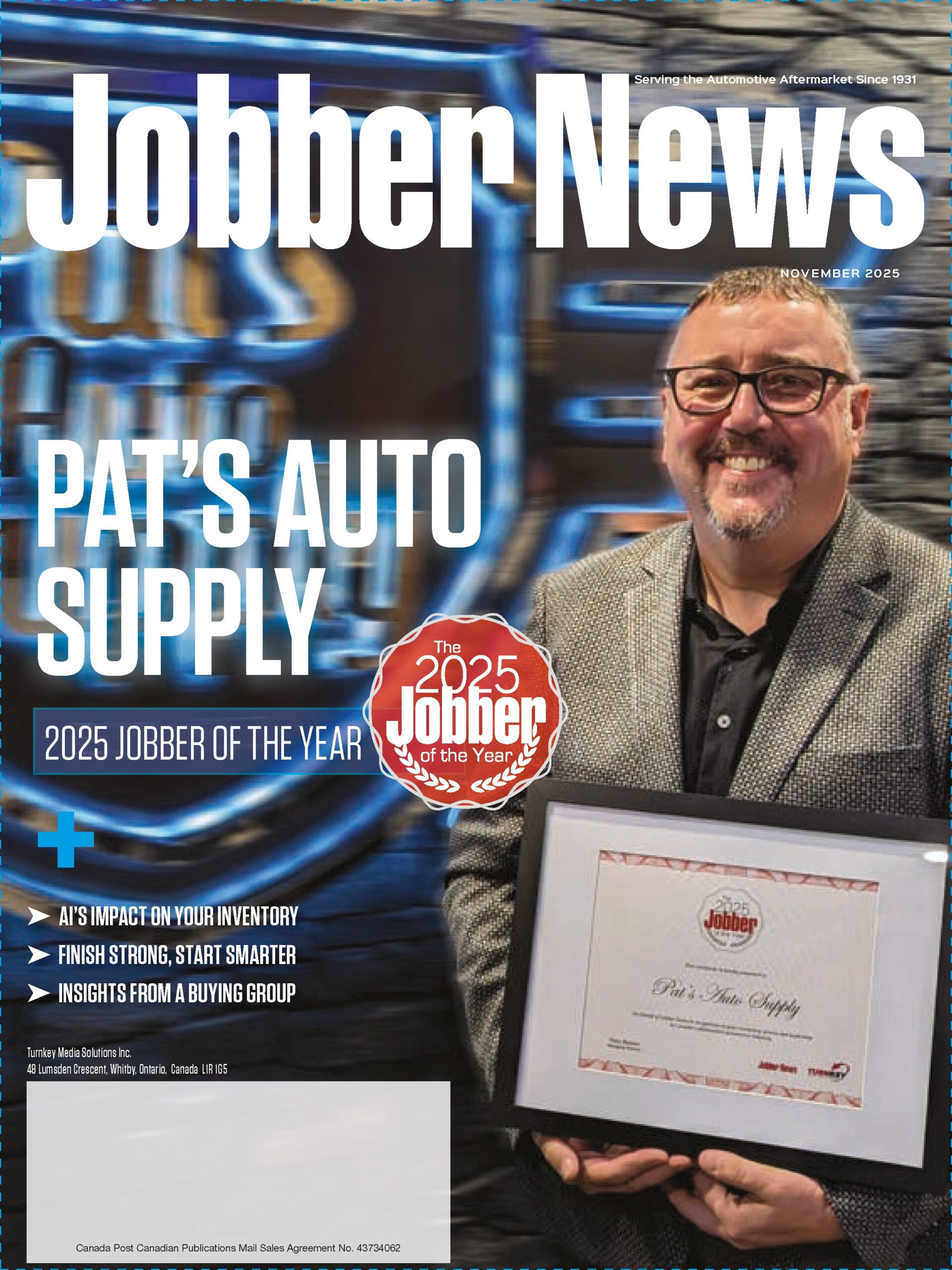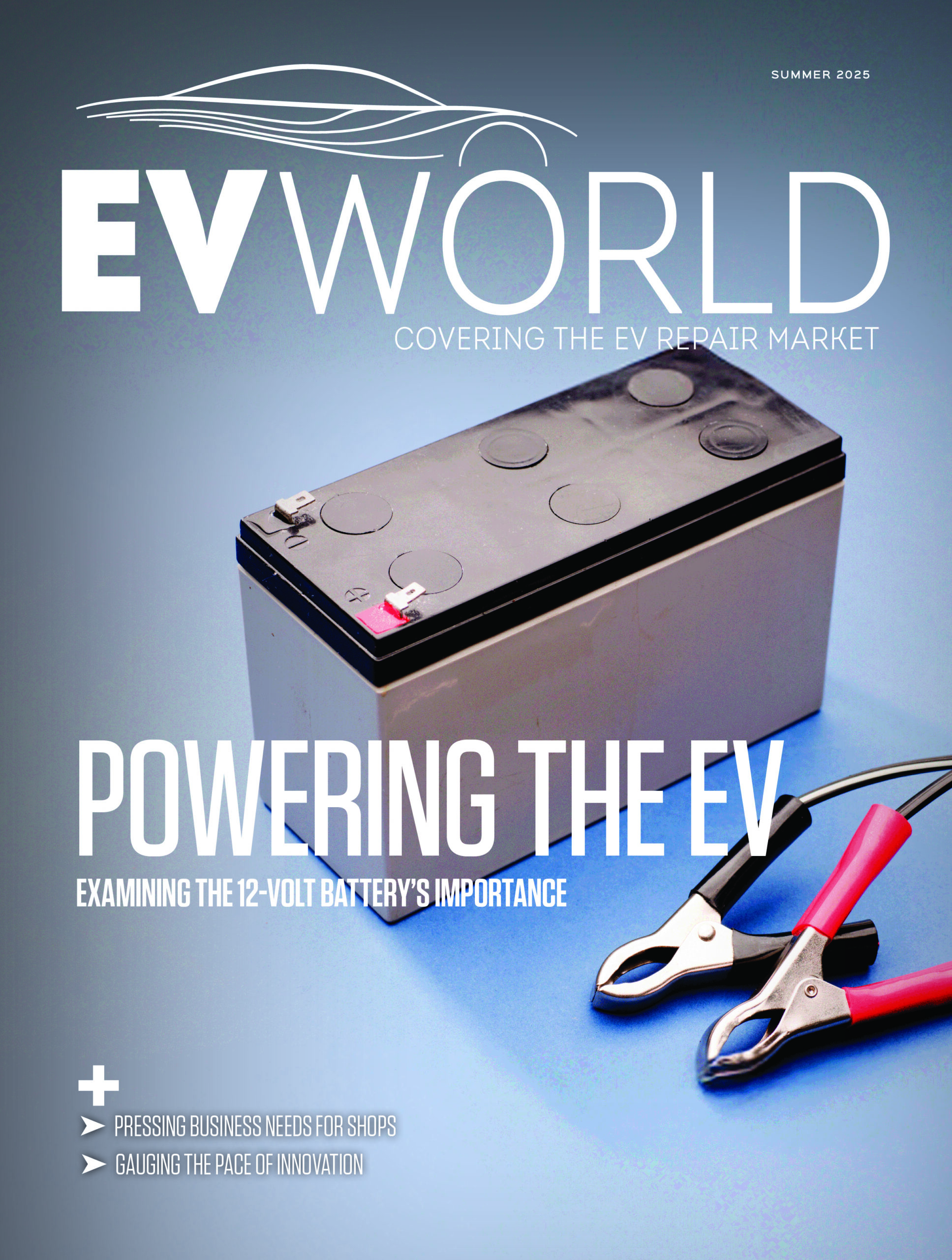
The automotive industry as a whole, including the aftermarket, are standing together following the Feb. 1 announcement that the United States was going to place 25 per cent tariffs on Canadian goods and retaliatory measures by the Canadian and Mexican governments.
In response, Canada said 25 per cent tariffs would start Feb. 4 on $30 billion in goods, followed by another $125 billion on further goods in three weeks. The initial impact would be seen in the aftermarket on items like tools and used tires.
But early in the evening of Feb. 3, hours before the tariffs would take effect, Canadian Prime Minister Justin Trudeau announced that the impending threat would be delayed by at least 30 days after it reached a deal with the U.S. over border concerns.Earlier in the day, Mexico announced the same reprieve.
However, that doesn’t mean the threat is eliminated. Crippling tariffs could still be implemented come March. If that does happen, there will be dangers to the automotive aftermarket, several leading organizations noted.
Listen: Kumar Saha explores the implications of tariffs for the auto care sector
On Monday, the Automotive Industries Association of Canada said that it’s keeping an eye on developments and is in close contact with federal departments, such as finance and Innovation, Science and Economic Development (ISED).
“We stand in support of the countless Canadian industries impacted by these tariffs and will keep our members informed of any new concerns for the auto care sector as they arise,” its statement said. “We encourage members to reach out and share how these tariffs may affect them, so we can provide the most relevant and timely information.”
Auto Service World asked AIA Canada how tariffs would impact the aftermarket by way of how new vehicle prices could affect the sector and how added financial pressures on consumers could impact the industry but the question wasn’t answered in their statement.
The day before the official announcement of tariffs by Washington, MEMA, The Vehicle Suppliers Association — which includes OE and aftermarket parts suppliers — issued a statement calling for the immediate removal of the tariffs by the United States.
The group noted that the USMCA provides certainty within the industry and emphasizes regional manufacturing.
“These tariffs will undermine this critical framework, creating economic uncertainty and deterring growth,” MEMA said.
It further added that “Tariffs of this magnitude would drive up costs for manufacturers, reduce investment in U.S. production, and force job losses across the industry.”
“We stand in support of the countless Canadian industries impacted by these tariffs and will keep our members informed of any new concerns for the auto care sector as they arise.”
Then on Monday, MEMA issued a follow up statement, saying it was welcoming the news that tariff implementation had been delayed for both Canada and Mexico for at least 30 days.
“This period of negotiation provides an opportunity to explore solutions that achieve shared objectives while maintaining the strength and stability of North American trade,” said MEMA’s latest statement. “The vehicle supplier industry remains the largest sector of manufacturing jobs in the U.S., and the relationships between the three nations are a key facet of the industry’s daily operations and competitiveness.”
The U.S.-based Auto Care Association also came out with a statement on Monday, slamming the decision for tariffs.
“These tariffs will have a direct and negative impact on American businesses and consumers,” said Bill Hanvey, its president and CEO. “Canada and Mexico are our largest trading partners, and together, we make the automotive aftermarket industry more competitive. Our industry relies on highly integrated supply chains that benefit the economies of all three countries, ensuring the availability of affordable vehicle repairs for millions of consumers. These supply chains also create jobs on both sides of the border, supporting a strong and resilient workforce.”
He pointed out that the aftermarket imported more than half of its parts from Canada and Mexico in 2023 — the former making up 11.6 per cent and the latter 46.6 per cent. China accounted for 8.5 per cent.
“Tariffs and disruptions to these supply chains create inefficiencies, increase costs and weaken our industry’s ability to compete globally,” Hanvey said, emphasizing that it’s Americans who will bear the costs of these decisions.
“Higher prices and supply chain disruptions will mean delays in essential vehicle repairs, ultimately impacting road safety,” Hanvey added. “We urge all parties to come to the table and negotiate a solution that keeps our industry strong, protects American jobs and ensures American consumers aren’t left paying the price.”
“Canada and Mexico are our largest trading partners, and together, we make the automotive aftermarket industry more competitive.”
For the new vehicle side of things, prices would certainly increase — anywhere from $3,000-$10,000 (all prices in USD). Wolfe Research and TD Economics agreed that the average car’s price will rise by $3,000 with tariffs. Full-size trucks could see a jump of $10,000 in pricing.
This is because parts can cross borders multiple times while being assembled into larger parts and then installed into the finished product. Tariffs would raise the price each time.
Frank DuBois, American University associate professor of information technology and analytics and publisher of an annual study of the amount of American material in each car told Kelley Blue Book that even tracking Canadian parts separately is “going to be a data problem. A nightmare, I might say.”
David Abrams, president and CEO of the Global Automakers of Canada, noted grave concerns from members and called for a resolution and for tariffs to be removed as soon as possible to avoid industry damage.
“Tarris only serve to increase costs, hinder trade, impact economic growth and hurt consumers and workers,” he said in a statement.
The costs of this can’t be absorbed by anyone, noted Linda Hasenfratz, executive chairwoman of Linamar, a auto parts maker with plants in Mexico, the U.S. and Canada.
“What the hell are we doing? We’ve had free trade in the auto industry in North America since the 1960s and with Mexico since NAFTA went into place,” she said.
Used car prices are also expected to rise alongside new vehicles. As new vehicle prices grow further out of reach, more will turn to the used market — an area that is already suffering from limited supply.
“What the hell are we doing? We’ve had free trade in the auto industry in North America since the 1960s and with Mexico since NAFTA went into place.”
The United Steelworkers union issued a statement, saying, “lashing out at key allies like Canada is not the way forward” to fix a broken trade system.
“The key to eliminating unfair competition, confronting global overcapacity in crucial sectors, and stemming the flow of unfairly traded products making their way into North America is targeted tariffs on countries that violate our trade laws and greater coordination with our trusted allies –—not sweeping actions that undermine crucial relationships,” it added.
The Canadian Trucking Alliance also lashed out, saying “tariffs will cripple” an already beleaguered industry.
“This has gotten out of hand,” says its president, Stephen Laskowski. “The reality is the tariffs are unreasonable [and] are out of proportion to the problem. The tariffs are like taking a sledgehammer to crack a nut.”
Image credit: Depositphotos.com













Leave a Reply